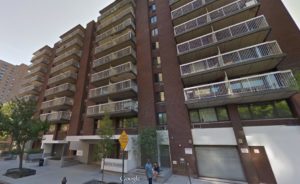 WHAT IS PUBLIC HOUSING?
WHAT IS PUBLIC HOUSING?
Public housing was established by the federal government to help provide decent and safe rental housing for eligible low-income families, the elderly, and persons with disabilities.
There are many different types of public housing and each type is regulated by local housing agencies. Although each agency has to follow the regulations and guidelines set up by the U.S. Department of Housing and Urban Development (HUD), each local Public Housing Authority has broad discretion in how that looks.
Even though Public Housing may not be the best option with a criminal background, read on, as things are changing in the world of reentry.
WHO IS ELIGIBLE FOR PUBLIC HOUSING?
Public housing is limited to low-income families and individuals. A local Public Housing Authority will determine eligibility based on:
- annual gross income
- whether you qualify as elderly, a person with a disability, or as a family; and
- U.S. citizenship or eligible immigration status.
If you are eligible, the local Public Housing Authority will check your references to make sure you and your family will be good tenants. The local PHA will deny admission to any applicant who may be expected to have a detrimental effect on other tenants or on the project’s environment.
WHAT ARE THE INCOME LIMITS FOR PUBLIC HOUSING?
The local Public Housing Authority will use income limits developed by HUD. HUD sets the lower income limit at 80% and very low income limits at 50% of the median income for the area in which you will be living. So even though you may be eligible at one Public Housing Authority location, you may not be eligible in another.
You will have to contact the Public Housing Authority serving the particular community in which you wish to live to help you determine the income limits for the area and size of your family.
You can also find the income limits here on the internet.
HOW DO I APPLY FOR PUBLIC HOUSING?
If you are interested in applying for public housing, contact your Public Housing Authority.
Here is the website for the Public Housing Agencies in Maryland:
https://www.hud.gov/states/maryland/renting/hawebsites
In Baltimore, that would be through the Baltimore Housing Authority.
To apply:
The application must be written. Either you or the PHA representative will fill it out.
The Public Housing Authority will usually collect the following information to determine eligibility:
(1) Names of all persons who would be living in the unit, their sex, date of birth, and relationship to the family head;
(2) Your present address and telephone number;
(3) Family characteristics (e.g., veteran) or circumstances (e.g., living in substandard housing) that might qualify the family for tenant selection preferences;
(4) Names and addresses of your current and previous landlords for information about your family’s suitability as a tenant;
(5) An estimate of your family’s anticipated income for the next twelve months and the sources of that income;
(6) The names and addresses of employers, banks, and any other information the HA would need to verify your income and deductions, and to verify the family composition; and
(7) The PHA also may visit you in your home to interview you and your family members to see how you manage the upkeep of you current home.
WHAT KIND OF DOCUMENTATION WILL I NEED TO HAVE TO APPLY?
As with all applications, you will need to provide documentation to verify the information that you give on your application.
That documentation might include:
- birth certificates of all members of the family
- tax returns to verify income
- Social Security Card
- evidence of eligible immigration status
The Public Housing Authority may also contact you employer.
You will be asked to sign a release to authorize for a criminal background check on everybody in your household over the age of 14.
WHAT DOES THE RELEASE FOR AUTHORIZATION FOR CRIMINAL BACKGROUND CHECK LOOK LIKE?
This is from the application for Public Housing in Baltimore:
Criminal History
I understand that the information requested will be used to conduct a criminal record screening which is
required as part of the eligibility determination process. I hereby consent and authorize HABC to conduct a
criminal conviction record check as part of this application process. I also understand that the results of this
criminal record check or false statements or information are grounds for denial of housing assistance and/or
termination of housing assistance (eviction). In the table below, please check (√) “Yes” or “No”.
Have you, or any family member, ever been convicted of a violent or drug related crime?
YES
NO
Have you, or any family member, ever been required to register as a sex offender?
YES
NO
Are you, or any family member, currently on parole, probation or home monitoring?
YES
NO
Your signature below indicates your consent for HABC to conduct the criminal conviction record check.
Adults (18 years and older) must sign below. Parents or legal guardians may sign for minors (17 and
younger).
__________________________________________________________Date:__________
Applicant
__________________________________________________________Date:__________
Co-applicant
__________________________________________________________Date:___________
Household member
__________________________________________________________Date:___________
Household member
__________________________________________________________Date:___________
Household member
__________________________________________________________Date:___________
Household member
IS THERE A WAITING LIST FOR PUBLIC HOUSING?
Yes. There is generally a waiting list for access to Public Housing. Once your application is accepted, your name will go on that waiting list and when your name is reached, the Housing Authority will contact you and determine if you are still eligible for the housing.
ARE PEOPLE WITH A CRIMINAL BACKGROUND ABLE TO APPLY FOR PUBLIC HOUSING?
Yes. Barring people from Public Housing based on a criminal record might violate the Fair Housing Act which bans discrimination based upon The Fair Housing Act “prohibits discrimination in the sale, rental, or financing of dwellings and in other housing-related activities on the basis of race, color, religion, sex,
disability, familial status or national origin.
In the past, any one with a criminal record could be barred from entry.
In April 2016, HUD’s Office of General Counsel issued guidance about how the Fair Housing Act applies to people with criminal backgrounds. In general, this guidance warned that:
- arrests can no longer be used to deny admission to applicants
- only convictions can be considered
Housing Authorities still have a lot of discretion in determining whether or not a person with a criminal background would pose a safety risk to other residents or the surrounding environment.
ARE THERE ANY CONVICTIONS THAT COULD PERMANENTLY BAR ME FROM LIVING IN PUBLIC HOUSING?
Yes, but only two according to Federal law.
- a person who is subject to lifetime sex offender registration
- a person who has been convicted of producing methamphetamines on public housing grounds
If you have one of these convictions but are already living in public housing, you have a right to stay because Federal law only applies to people who are applying to live in public housing, not those who already do.
Call a lawyer if eviction proceedings are brought against you.
HOW CAN I PUT MY CRIMINAL BACKGROUND IN THE BEST LIGHT FOR THE PUBLIC HOUSING AUTHORITY TO EVALUATE ME?
In order to put yourself in the best light for Public Housing, you will want to
- Include in your application:
- Evidence of treatment or rehabilitation, including evidence of completion of a drug counseling program or Certificates of Relief from Disabilities and
- Certificates of Good Conduct.
- Evidence that your household is participating in, or willing to participate in, other social services or counseling programs.
If you are denied admission or are evicted from Public Housing because of criminal activity, you MUST be provided with the grounds for denial or termination, a copy of your criminal record (if you have one), and any other relevant PHA documents.
You also must be given the opportunity to dispute the accuracy and relevance of any documents being used by the Housing Authority to deny your admission or to evict you.
Call an attorney for advise.
